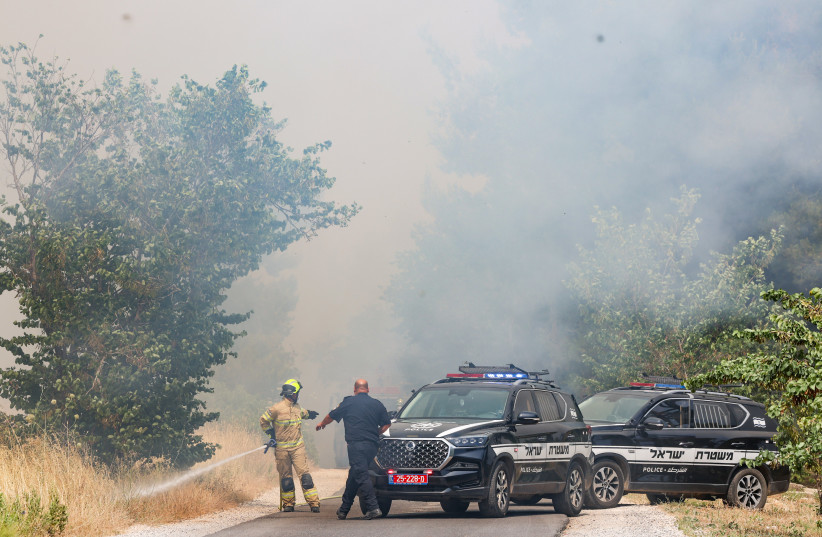A third Lebanon war would be a catastrophe, United Nations Secretary-General Antonio Guterres said as he warned against the escalating rhetoric and violence between Israel and Hezbollah and called for international intervention.
“Let’s be clear: The people of the region and the people of the world cannot afford Lebanon to become another Gaza,” Guterres told reporters at the UN on Friday.
“I felt compelled today to voice my profound concerns about the escalation between Israel and Hezbollah along the Blue Line. Escalation [in terms of] continued exchanges of fire,” he said.
In addition, he noted, there has been an “escalation in bellicose rhetoric from both sides as if an all-out war were imminent.”
“The risk for the conflict in the Middle East to widen is real and must be avoided,” he stated.

“One rash move, one miscalculation, could trigger a catastrophe that goes far beyond the border and, frankly, beyond imagination,” he stressed.
Guterres spoke as hope for a diplomatic resolution to the violence on Israel’s northern border, which has been linked to a Gaza ceasefire and hostage deal, seemed slim. US special envoy Amos Hochstein, who is slated to meet with Defense Minister Yoav Gallant this week, was in Israel and Lebanon on June 17 and 18 as he attempted to find a diplomatic window to end the cross-border violence in the North that has existed in parallel to the Gaza war.
Approved plans for an offensive
The IDF on Tuesday approved operational plans for an offensive in Lebanon, followed by a televised threat from Hezbollah chief Hassan Nasrallah.
“There will be no place safe from our missiles and our drones” in Israel in the event of a broader war, he warned.
Nasrallah also threatened Cyprus, the EU member state in closest proximity to Lebanon, with which it has cordial relations, accusing it of allowing Israel to use its airports and bases for military exercises.
Israeli Foreign Minister Israel Katz on Friday wrote on X, “Israel cannot allow the Hezbollah terror organization to continue attacking its territory and citizens, and soon we will make the necessary decisions.
“The free world must unconditionally stand with Israel in its war against the axis of evil led by Iran and extreme Islam. Our war is also your war, and Nasrallah’s threat to Cyprus is just the beginning.
“Evil must be defeated, as history has proven in the past,” he stated.
In New York, Guterres called for an international intervention.
“The world must say loudly and clearly: Immediate de-escalation is not only possible – it is essential,” he stressed.
“For our part, the United Nations is actively engaging to promote peace, security, and stability, in line with Security Council Resolution 1701,” Guterres said as he referenced the ceasefire agreement that ended the Second Lebanon War in 2006.
The EU’s chief representative for the Union for Foreign Affairs and Security Policy, Josep Borrell, wrote on X that he had spoken with the Cypriot Foreign Minister, “expressing my concern for rising tensions across the Blue Line and the situation in the Middle East.
“We shared a strong commitment to foster de-escalation efforts. The EU stands in solidarity [with] Cyprus,” he stated.
“I repeat my call to avoid a regional spillover,” Borrell announced.
Reuters contributed to this report.
